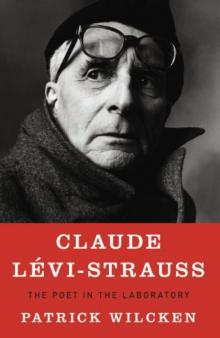Claude Levi-Strauss: The Poet in the Laboratory 

Genre: Other9
Published: 2010
View: 1612
Read OnlineRead Claude Levi-Strauss: The Poet in the Laboratory Storyline:
When Claude Lévi-Strauss passed away in 2009 at age 100, France celebrated the life and contributions of not only a preeminent anthropologist, but one of the defining intellectuals of the 20th century. Just as Freud had shaken up the antiquarian discipline of psychiatry, so had Lévi-Strauss revolutionized anthropology, transforming it from the colonial-era study of “exotic” tribes to one consumed with fundamental questions about the nature of humanity and civilization itself. Remarkably, there has never been a biography in English of the enigmatic Claude Lévi-Strauss. Drawing on a welter of original research and interviews with the anthropologist, Patrick Wilcken’s Claude Lévi-Strauss fills this void. In rich detail, Wilcken recreates Levi-Strauss’s peripatetic life: his groundbreaking fieldwork in some of the remotest reaches of the Amazon in the 1930s; his years as a Jew in Nazi-occupied France and an emigré in wartime New York; and his return to Paris in the late 1940s, where he clashed with Jean-Paul Sartre and fundamentally influenced fellow postwar thinkers from Jacques Lacan to Michel Foucault and Roland Barthes. It was in France that structuralism, the school of thought he founded, first took hold, creating waves far beyond the field of anthropology. In his heyday, Levi-Strauss was both a hero to contemporary intellectuals, and an international celebrity. In Claude Levi-Strauss, Wilcken gives the reader a fascinating intellectual tour of the anthropologist’s landmark works: Tristes Tropiques, his most famous book, a literary meditation on his travels and fieldwork; The Savage Mind, which showed that “primitive” people are driven by the same intellectual curiosities as their Western counterparts, and finally his monumental four-volume Mythologiques, a study of the universal structures of native mythology in the Americas. In the years that Lévi-Strauss published these pioneering works, Wilcken observes, tribal societies seemed to hold the answers to the most profound questions about the human mind. Following the great anthropologist from São Paulo to the Brazilian interior, and from New York to Paris, Patrick Wilcken’s Claude Lévi-Strauss is both an evocative journey and an intellectual biography of one of the 20th century’s most influential minds. ReviewPRAISE FOR 'EMPIRE A DRIFT': 'Wilcken's perceptive and skilful narration of the extraordinary culture clash between New and Old Worlds is fascinating, at times hilarious and helps explain why modern Brazil turned out so differently from its South American neighbours' Alex Bellos 'A brilliant account ... Empire Adrift is a model of historical writing, erudite yet lively, maintaining narrative vigour while accurately rendering complex events at different times in different continents' Guardian ReviewPRAISE FOR 'EMPIRE A DRIFT': 'Wilcken's perceptive and skilful narration of the extraordinary culture clash between New and Old Worlds is fascinating, at times hilarious and helps explain why modern Brazil turned out so differently from its South American neighbours' Alex Bellos 'A brilliant account ... Empire Adrift is a model of historical writing, erudite yet lively, maintaining narrative vigour while accurately rendering complex events at different times in different continents' GuardianPages of Claude Levi-Strauss: The Poet in the Laboratory :